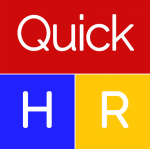Why didn’t I get an interview? 8 top tips
I’m spending hours every week reading applications and CVs at the moment. Time and time again I am coming across the same common mistakes that tick the ‘no’ box.
So have a read through my list of bugbears and you never know it might help you get that all important interview and land your dream job. Here are the top 8 reasons why you didn’t make the shortlist:
- Have you applied for the right job?
Yes. Seriously. Did you click the right ‘apply here’ button on that job website? Double check. I’ve lost track of the number of applications for some roles that were clearly meant for the job listed underneath, different roles and even different companies.
- Tailor your application
Personalise your online application and CV to the role you are applying for. Or leave out specifics if you are applying for different types of roles using the same CV and use a cover letter instead – see below.
If I am after a care worker and the first line of your application says you are looking for a job in retail, that tells me either you don’t really want to work in care or you’ve been sloppy with your application.
It really is worth spending the time reading through the advertised role and changing your application for each job you apply for. Check you haven’t referred to another job and amend your skills and experience to fit the job requirements. Remove things that are not relevant to this role.
- Spelling and grammar
Always, always use a spellcheck. This doesn’t always work – there, their, they’re – these are called homophones, words that sound the same but are spelled differently.
This is especially important if you are applying for a job that involves writing to customers, report-writing and attention to detail. So, if like me you struggle with spelling or grammar then ask a friend or relative to proof read what you’ve written.
- Waffle and jargon
Keep it simple. I really am interested in the sales strategy you implemented but I don’t need to read a whole page about it. One sentence telling me what you did and another showing me the results it achieved works just fine (and saves space on your CV)
We get used to the language, jargon and abbreviations used within our organisations. Remember that RTPs, SMPs and technical terms may mean nothing to anyone outside your current company and that’s frustrating.
Similarly, it’s worth remembering that the first person to read your masterpiece may not be the hiring manager. They may have 100+ applications to read through and no time to interpret your meaning.
- Covering letters
Yes please, even if you’re using a job board or email. Check out this article from Emphasis on why you should make the effort. http://writing-skills.com/always-send-cover-letter-cv-resume
- Presentation:
You all already know the rules – 2 pages or less if it’s a CV. But I cannot begin to explain how dull it is looking through loads of CVs that are identical in format with lists of jobs, huge paragraphs, and no spacing.
If you’ve just left University then yes, I do want a detailed list of your qualifications and work experience. If you’re at the other end of the spectrum, think relevance: what can you leave out or just bullet point?
Have a think about the type of company you are applying to. Are they a large corporate? Are they a funky start up? Play around with your presentation to suit them. What would make you stand out? Try and think creatively even if it’s not a creative role you are applying for.
Here are some examples for you to try: http://novoresume.com/resume-templates.
- I want to find out about you
Something interesting about you that doesn’t involve work and humour will catch my attention. By all means link to your social media accounts if you want – it helps me build an overall picture of you. Be warned though, if I find discriminatory tweets or loads of photos of you drunk on Facebook, I may think twice. I will also cross check your application against your LinkedIn profile, so keep it up to date and don’t be tempted to exaggerate your roles.
- Do your research
If you’ve made my initial shortlist, I often arrange a quick call to find out a bit more about you before inviting you in for a face-to-face interview. That helps you too – you don’t have to take spend time coming to an interview unless both sides are pretty sure it’s potentially a good idea to meet up.
The first question I am going to ask is what you know about the company and the job you’ve applied for. My least favourite answers are:
- I haven’t had time to look
- I’m not sure what the company does
- I had a quick look at the website.
Not good enough and this is where most applicants fall down. There are other candidates who have taken the time to research, can tell me exactly what the company does, what they liked about the company and can talk me through things they’ve learned from the website – without me prompting them.
If you have clearly thought about your skills, why you’ve applied for this particular job and what you can bring to the role having done your research then it’s highly likely you’ll get an interview.
I’m often asked for feedback from job seekers as to why they were not shortlisted for an interview and I’m always happy to oblige. It helps people improve their application for the next role and gets them thinking about whether they have the right experience or potential for the type of jobs they are applying for.
But more often than not, as you can see, it’s something really simple, easily avoided if you spend a little more time putting the effort in. If you want the job, it’s always worth it.
By Melissa




Leave a Reply
Want to join the discussion?Feel free to contribute!